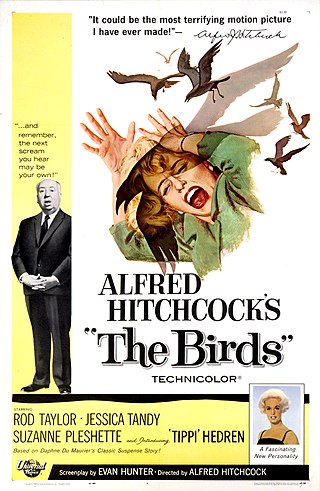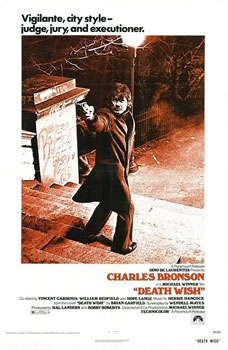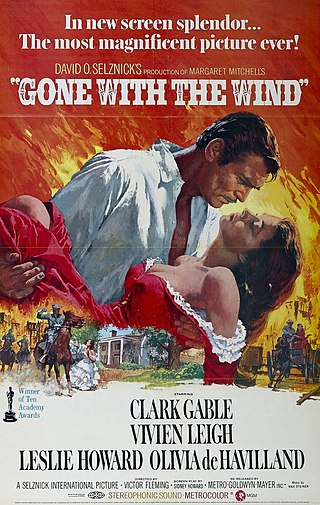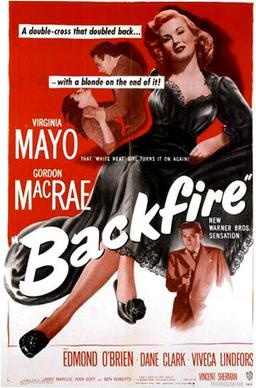
Comedy film is a film genre that emphasizes humor. These films are designed to amuse audiences and make them laugh. Films in this genre typically have a happy ending, with dark comedy being an exception to this rule. Comedy is one of the oldest genres in film, and it is derived from classical comedy in theatre. Some of the earliest silent films were slapstick comedies, which often relied on visual depictions, such as sight gags and pratfalls, so they could be enjoyed without requiring sound. To provide drama and excitement to silent movies, live music was played in sync with the action on the screen, on pianos, organs, and other instruments. When sound films became more prevalent during the 1920s, comedy films grew in popularity, as laughter could result from both burlesque situations but also from humorous dialogue.

A storyboard is a graphic organizer that consists of illustrations or images displayed in sequence for the purpose of pre-visualizing a motion picture, animation, motion graphic or interactive media sequence. The storyboarding process, in the form it is known today, was developed at Walt Disney Productions during the early 1930s, after several years of similar processes being in use at Walt Disney and other animation studios.

The Deer Hunter is a 1978 American epic war drama film co-written and directed by Michael Cimino about a trio of Slavic-American steelworkers whose lives are upended after fighting in the Vietnam War. The three soldiers are played by Robert De Niro, Christopher Walken and John Savage, with John Cazale, Meryl Streep and George Dzundza in supporting roles. The story takes place in Clairton, Pennsylvania, a working-class town on the Monongahela River south of Pittsburgh, and in Vietnam.
A screenplay, or script, is a written work produced for a film, television show, or video game by screenwriters. A screenplay written for television is also known as a teleplay. Screenplays can be original works or adaptations from existing pieces of writing. A screenplay is a form of narration in which the movements, actions, expressions and dialogue of the characters are described in a certain format. Visual or cinematographic cues may be given, as well as scene descriptions and scene changes.

The Birds is a 1963 American natural horror-thriller film produced and directed by Alfred Hitchcock, released by Universal Pictures. Loosely based on the 1952 short story of the same name by Daphne du Maurier, it focuses on a series of sudden and unexplained violent bird attacks on the people of Bodega Bay, California, over the course of a few days.

The Lost Boys is a 1987 American supernatural black comedy horror film directed by Joel Schumacher, produced by Harvey Bernhard with a screenplay written by Jeffrey Boam, Janice Fischer and James Jeremias, from a story by Fischer and Jeremias. The film's ensemble cast includes Corey Feldman, Jami Gertz, Corey Haim, Edward Herrmann, Barnard Hughes, Jason Patric, Kiefer Sutherland, and Dianne Wiest.
An outline, also called a hierarchical outline, is a list arranged to show hierarchical relationships and is a type of tree structure. An outline is used to present the main points or topics (terms) of a given subject. Each item in an outline may be divided into additional sub-items. If an organizational level in an outline is to be sub-divided, it shall have at least two subcategories, although one subcategory is acceptable on the third and fourth levels, as advised by major style manuals in current use. An outline may be used as a drafting tool of a document, or as a summary of the content of a document or of the knowledge in an entire field. It is not to be confused with the general context of the term "outline", which a summary or overview of a subject, presented verbally or written in prose. The outlines described in this article are lists, and come in several varieties.
A film treatment is a piece of prose, typically the step between scene cards and the first draft of a screenplay for a motion picture, television program, or radio play. It is generally longer and more detailed than an outline, and it may include details of directorial style that an outline omits. Treatments read like a short story, but are told in the present tense and describe events as they happen. A treatment may also be created in the process of adapting a novel, play, or other pre-existing work into a screenplay.

The read-through, table-read, or table work is a stage of film, television, radio, and theatre production when an organized reading of the screenplay or script is conducted around a table by the actors with speaking parts.
Palo, also known as Las Reglas de Congo, is an African diasporic religion that developed in Cuba during the late 19th or early 20th century. It arose amid a process of syncretism between the traditional Kongo religion of Central Africa, the Roman Catholic branch of Christianity, and Spiritism. An initiatory religion practised by paleros (male) and paleras (female), Palo is organised through small autonomous groups called munanso congo, each led by a tata (father) or yayi (mother).

Screenwriting or scriptwriting is the art and craft of writing scripts for mass media such as feature films, television productions or video games. It is often a freelance profession.

The 2002 American League Championship Series (ALCS) was a matchup between the Wild Card Anaheim Angels and the Central Division Champion Minnesota Twins. The Angels advanced to the Series after dethroning the reigning four-time AL Champion New York Yankees in the 2002 American League Division Series three games to one. The Twins made their way into the Series after beating the Athletics three games to two. The Angels won the Series four games to one and went on to defeat the San Francisco Giants in the 2002 World Series to win their first World Series championship.

Howard the Duck is a 1986 American superhero comedy film directed by Willard Huyck and starring Lea Thompson, Jeffrey Jones, and Tim Robbins. Based on the Marvel Comics character of the same name, the film was produced by Gloria Katz and written by Huyck and Katz, with George Lucas as executive producer. The screenplay was originally intended to be an animated film, but the film adaptation became live-action because of a contractual obligation. While several TV adaptations of Marvel characters were aired, this was the first theatrical release since the Captain America serial of 1944.

Death Wish is a 1974 American vigilante action-thriller film loosely based on the 1972 novel of the same title by Brian Garfield. Directed by Michael Winner, the film stars Charles Bronson as Paul Kersey, an architect who becomes a vigilante after his wife is murdered and daughter molested during a home invasion. It was the first film in the Death Wish film series. It was followed eight years later with Death Wish II and other similar films.
A scriptment is a written work by a movie or television screenwriter that combines elements of a script and treatment, especially the dialogue elements, which are formatted the same as in a screenplay. It is a more elaborate document than a standard draft treatment. Some films have been shot using only a scriptment.

Jabba Desilijic Tiure, more commonly known as Jabba the Hutt, is a fictional character in the Star Wars franchise created by George Lucas. He is a large, slug-like crime lord of the Hutt species. Jabba first appeared in the 1983 film Return of the Jedi, in which he is portrayed by a one-ton puppet operated by several puppeteers. He subsequently appeared in the 1997 Special Edition of the original Star Wars film, and the 1999 prequel film The Phantom Menace. Jabba is voiced by Larry Ward in Return of the Jedi and by Scott Schumann in Star Wars and The Phantom Menace.

Raise the Titanic is a 1980 adventure film produced by Lew Grade's ITC Entertainment and directed by Jerry Jameson. The film, written by Eric Hughes (adaptation) and Adam Kennedy (screenplay), is based on the 1976 book of the same name by Clive Cussler. The storyline concerns a plan to recover RMS Titanic to obtain cargo valuable to Cold War hegemony.

In film and television, drama is a category or genre of narrative fiction intended to be more serious than humorous in tone. The drama of this kind is usually qualified with additional terms that specify its particular super-genre, macro-genre, or micro-genre, such as soap opera, police crime drama, political drama, legal drama, historical drama, domestic drama, teen drama, and comedy-drama (dramedy). These terms tend to indicate a particular setting or subject matter, or they combine a drama's otherwise serious tone with elements that encourage a broader range of moods. To these ends, a primary element in a drama is the occurrence of conflict—emotional, social, or otherwise—and its resolution in the course of the storyline.

Backfire is a 1950 American film noir crime film directed by Vincent Sherman starring Virginia Mayo and Gordon MacRae, with Edmond O'Brien, Dane Clark, and Viveca Lindfors in support.
Spider-Man Versus Kraven the Hunter is a 1974 American superhero short film written and directed by Bruce Cardozo. It is a fan film that was endorsed by Marvel Comics and authorized by Stan Lee.













